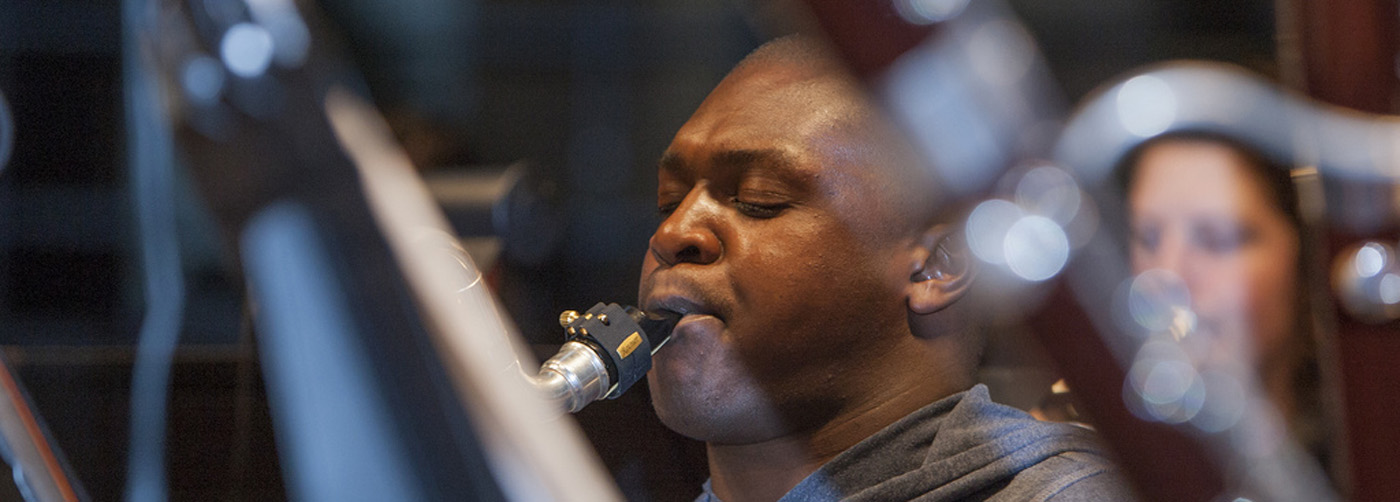 By Dave Best
By Dave Best
“I can’t live one day without hearing music, playing it, studying it, or thinking about it.”1
If music is your passion, that famous quote by conductor and composer Leonard Bernstein might lead you to audition for a music performance program in college.
In his book Outliers, Malcolm Gladwell popularized the idea that it takes 10,000 hours to achieve mastery in a field. So if you play the violin, clarinet, trumpet, marimba, or any other orchestra instruments, or are a vocalist or pianist, you need to be well prepared for your college music audition.
Imagine you truly dedicated two hours a day, 365 days per year throughout middle school and high school to your instrument. Would you have mastered it? Based on the 10,000-hour rule of deliberate practice, you might be about halfway there.
Colleges do not expect you to be perfect when you audition. Music professors even at the top programs are not expecting a virtuoso or the next prodigy to walk into their studio. So what do schools look for in a musician in a college audition?
For simplicity, let me help you master your audition in four stages.
Preparation:
Clarinet pedagogue Yehuda Gilad, professor at USC and Colburn whose students have won hundreds of orchestral auditions, says, “When you are on stage, everything leaves you EXCEPT your preparation.” 1
So come to your audition prepared, truly better prepared than you have been for anything in your life. Follow the instructions in the audition requirements clearly outlined on your college’s website to make sure you are playing the correct music. Learn the correct version of each piece of the audition repertoire.
Listen to how some of the masters on your instrument have performed the composers’ music. Search online for recordings. Gain an understanding how these artists interpreted the music and how your instrument fits into the music. Develop your own voice; do not just try and imitate other artists. Research the composers, some background of the pieces, and period in which they were composed.
Just as they say the way to Carnegie Hall is practice, practice, practice, so is your path to a successful audition. Dedicate yourself to the music and invest the proper effort daily to prepare for your audition, preferably working with your private teacher if you have one. Practice deliberately and precisely with discipline to constantly improve each day.
Conduct mock auditions so you will understand what it means to be alone and judged. Record your mock auditions, and learn from the experience so you make the proper adjustments.
Warm-Up:
Arrive early on the day of your audition because as a musician, being on time is late. If you are traveling by plane, schedule your travel to the school for the day before the audition. Take in your surroundings once you arrive at the music building. Ask where there is a practice room. (There may be one assigned to you.)
Set up your instrument in the practice room and do your warm up routine. Be flexible as the environment may be different than you are used to. Be resilient and ready to perform your best regardless of the conditions.
Organize all copies of your music in folders and have your instrument in hand.
Walk back to the audition room (often the professor’s studio) once you have completed your warm up. Stand outside patiently and wait for your call to audition.
First Impression:
You create the first impression by how you conduct yourself when you enter the audition room. That is right, before you play your first note the audition has begun. Dress as if you are performing and the music professor is your audience.
Perform:
Now it is your time, your turn to shine. It is normal to be a little nervous; if you were not nervous some would say you do not care. Because you are so well prepared for the audition, nothing will get you off key.
In the next 10-15 minutes you have the opportunity to demonstrate your musicality and mastery of the required music. The professor wants to hear how you play and, importantly, how you follow directions. Often, you might be asked what you want to play first to see how you think on your feet. Then you will be instructed what piece to play next and where to start and then when to stop. Be prepared for a few questions to see how well you understand the music.
Do your best and reinforce your interest in the school. Do not expect much if any feedback at the audition.
Ultimately, your passion and preparation are essential to a successful audition. Every moment you invest in mastering your instrument helps you be prepared on audition day. Beyond your first impression and your playing, professors seek students who are teachable. It is an apprentice system, and they will be investing time with you weekly for the next four years.
So be prepared to hear, play, study and think about music every day. That is what you will experience as a music performance major in college: working towards mastery of your instrument.
Sources used:
- Dinner with Lenny, the Last Long Interview with Leonard Bernstein, Jonathan Cott, Oxford University Press
- Richie Hawley, Clarinet Blog, http://www.richiehawley.com/artist.php?view=news&nid=1544




